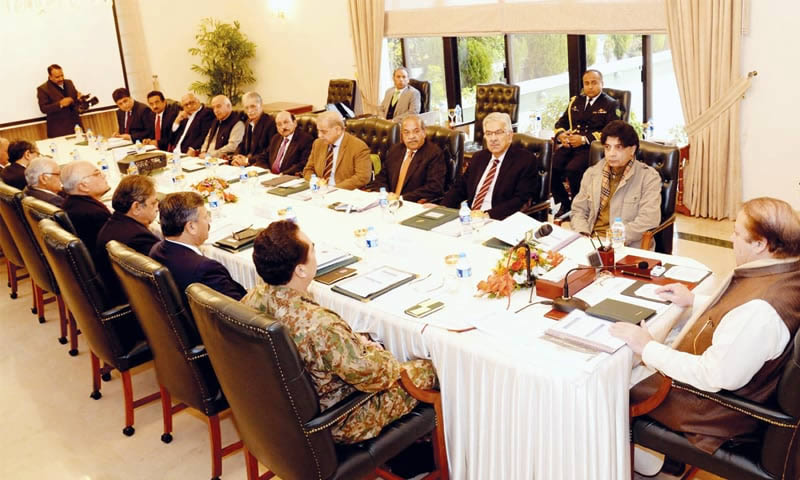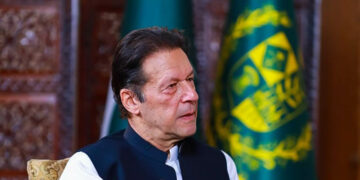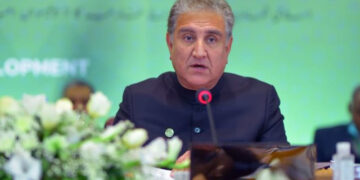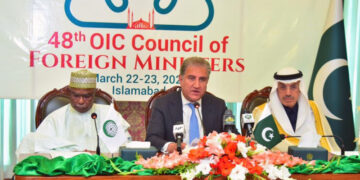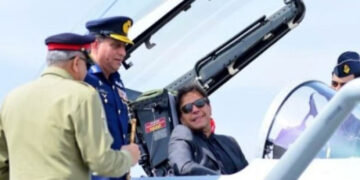The civilian and military leadership exchanged notes on Wednesday over the workings of the military courts set up following the passage of the 21st constitutional amendment.
[contentblock id=1 img=adsense.png]
The main focus of the meeting, according to government sources privy to the huddle, was the criterion to finalise the list of cases that will be tried by special trial courts headed by military officers.
Following a refusal to support the new amendment by the right-wing Jamaat-i-Islami and JUI-F, who have termed the move “anti-democratic” and “seminary-specific”, the government is taking extra measures to ensure that the working of the courts is absolutely non-partisan. In the three APCs held to build a political consensus, the army leadership had assured sceptical political parties that only “jet-black terrorists” who have been found individually involved in heinous crimes would be tried in these courts.
[contentblock id=2 img=gcb.png]
However, the JUI-F and JI have refused to change their stance, accusing the government of targeting madressahs under the new law. “Both the civilian and military leadership is absolutely clear on the intended purposes of the military courts, but the slightest misstep can create controversy, therefore, we have held detailed discussion to put in place an effective check-and-balance mechanism for the scrutiny of cases that will be forwarded to the military courts,” a government adviser told Dawn.
Under the amendment, a case can be sent to military courts for trial only after the approval of the federal government. Following the passage of the 21st amendment, the military establishment announced the setting up of nine military courts, which may be increased over time. Of the nine courts, Khyber Pakhtunkhwa and Punjab would have three each, while Sindh and Balochistan would have two and one, respectively. In his briefing, Interior Minister Chaudhry Nisar Ali Khan talked about the monitoring of suspected madressahs and militant originations. However, he called for proactive collaboration among the many intelligence agencies for the identification of targets.
[contentblock id=3 img=adsense.png]
The meeting, according to the adviser, was also briefed on the steps the provincial governments had taken following the initiation of the National Action Plan (NAP). At the meeting, the Sindh chief minister sought the federal government’s assistance in dealing with the two million illegal immigrants that were scattered all over the province. Addressing the participants of the meeting, Prime Minister Nawaz Sharif resolved to implement NAP in letter and spirit with the close coordination of all provinces for the elimination of terrorism from the country. “We have to implement this agenda no matter what, and all provinces have to work hand in hand,” Mr Sharif told the meeting held at the PM’s House. -dawn


